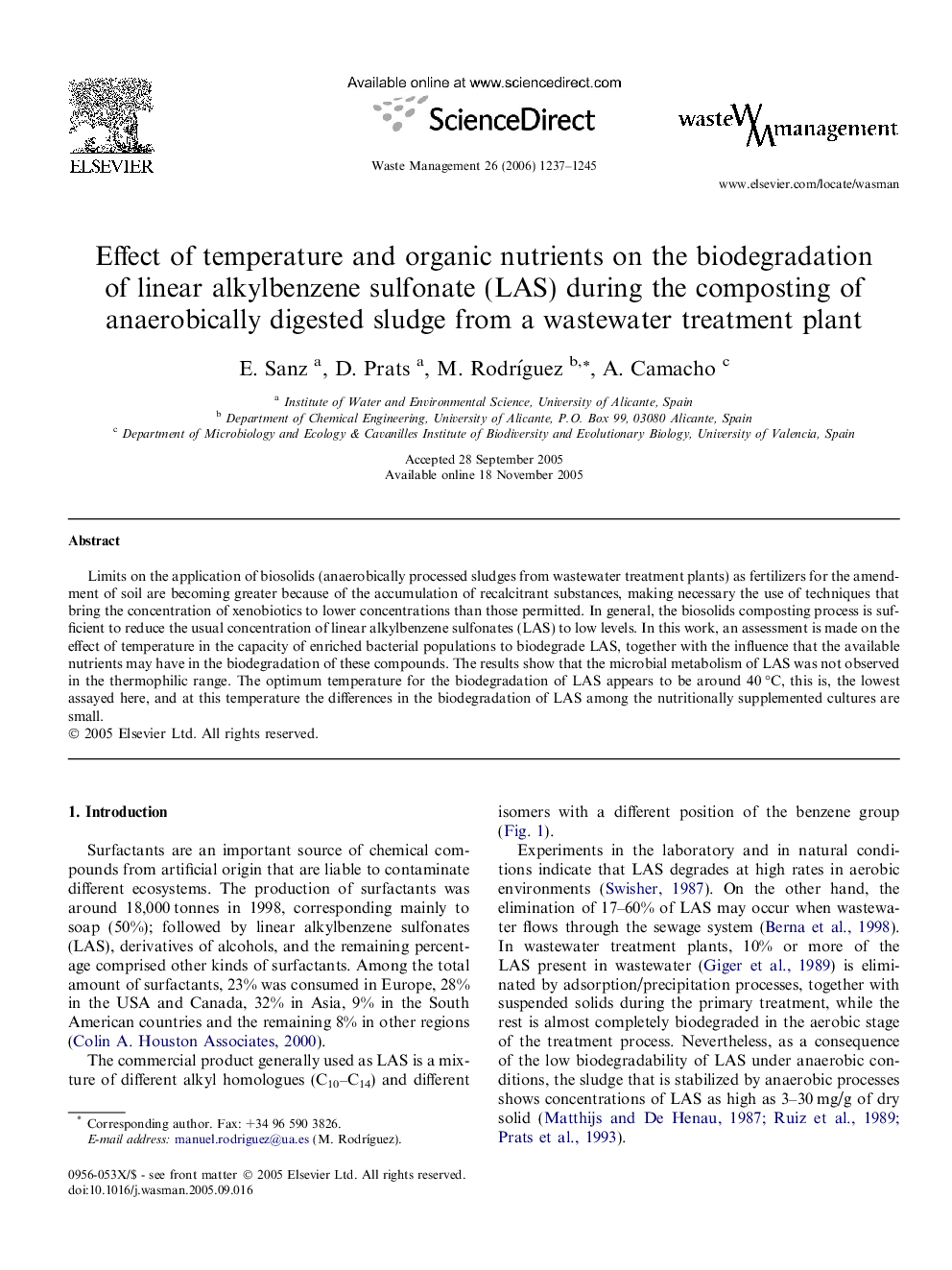| Article ID | Journal | Published Year | Pages | File Type |
|---|---|---|---|---|
| 4474206 | Waste Management | 2006 | 9 Pages |
Limits on the application of biosolids (anaerobically processed sludges from wastewater treatment plants) as fertilizers for the amendment of soil are becoming greater because of the accumulation of recalcitrant substances, making necessary the use of techniques that bring the concentration of xenobiotics to lower concentrations than those permitted. In general, the biosolids composting process is sufficient to reduce the usual concentration of linear alkylbenzene sulfonates (LAS) to low levels. In this work, an assessment is made on the effect of temperature in the capacity of enriched bacterial populations to biodegrade LAS, together with the influence that the available nutrients may have in the biodegradation of these compounds. The results show that the microbial metabolism of LAS was not observed in the thermophilic range. The optimum temperature for the biodegradation of LAS appears to be around 40 °C, this is, the lowest assayed here, and at this temperature the differences in the biodegradation of LAS among the nutritionally supplemented cultures are small.
